Portable Metal Hardness Tester
10000 INR/Unit
Product Details:
- Color Black
- Material stainless steel
- Product Type Portable Metal Hardness Tester
- Application Industrial
- Usage laboratory
- Click to View more
X
Portable Metal Hardness Tester Price And Quantity
- 1 Unit
- 10000 INR/Unit
Portable Metal Hardness Tester Product Specifications
- Portable Metal Hardness Tester
- laboratory
- Industrial
- Black
- stainless steel
Portable Metal Hardness Tester Trade Information
- 100 Unit Per Week
- 1 Week
Product Description
Pro Engineers is the most established and trusted brand for portable metal hardness testing. Pro Engineers uses the well accepted dynamic Leeb hardness testing principle. An impact body with a hard-metal test tip is propelled by spring force against the surface of the test piece. Surface deformation takes place when the impact body hits the test surface, which results in loss of kinetic energy. This energy loss is detected by comparison of impact and rebound velocities, vi and vr, measured at a specific distance from the surface immediately before and after the impact.
Advantages of Portable Metal Hardness Testing Device:
1. Integrated design, easy operation
2. Digital with high contrast LCD display
3. High accuracy with patient technology +/-2 HL (or 0.3% @HL800)
4. Memories with 300 data, data can be recalled easily
5. USB inter face, it can connect to computer
6. Customer recalibration allowed
7. 3.7 V Li-ion rechargeable battery, it can be charged by USB or power source
8. Statistics value can be calculated automatically
9. With strength conversion value
Portable Metal Hardness Tester Specifications:
1. Model : URNDT UHL1300
2. Display : LCD with back light
3. Power Supply : 3.7V Li-ion rechargeable battery
4. Dimension : 148mm x 44mm x 22mm
5. Net Weight : 110g
Portable Metal Hardness Testing Device FAQ:
Q. What is a portable metal hardness tester?
Ans: A portable metal hardness tester is a handheld device used to determine the hardness of metallic materials. It's commonly employed in various industries such as manufacturing, construction, and maintenance.
Q. How does a portable metal hardness tester work?
Ans: These testers typically work on the principle of indentation hardness testing. They use either rebound (dynamic) or static methods to measure the hardness of the material. Rebound testers use a spring-loaded impact body that strikes the surface, while static testers exert a known force through a penetrator onto the material surface.
Q. What are the advantages of using a portable metal hardness tester?
Ans: Below are some of the advantages:
1. Portability: These testers are lightweight and compact, making them easy to carry around for on-site testing.
2. Non-destructive testing: Many portable hardness testers offer non-destructive testing, meaning they can assess hardness without causing damage to the material.
3. Versatility: They can test a wide range of materials, including metals, alloys, and even plastics.
4. Quick results: Portable testers often provide immediate readings, allowing for rapid assessment of material hardness.
Q. What types of metals can be tested with a portable hardness tester?
Ans: Portable hardness testers can be used to test various metals and alloys, including steel, aluminum, copper, brass, titanium, and more.
Q. Can a portable metal hardness tester measure the hardness of uneven surfaces?
Ans: Yes, many modern portable hardness testers are equipped with features such as auto-probe positioning and adjustable impact direction, allowing them to measure the hardness of uneven or hard-to-reach surfaces.
Q. How accurate are portable metal hardness testers?
Ans: The accuracy of a portable hardness tester depends on various factors including the model, calibration, and testing conditions. Generally, they provide reliable results for most applications but may have limitations in certain situations.
Q. Do portable metal hardness testers require calibration?
Ans: Yes, like any precision measuring instrument, portable hardness testers require periodic calibration to ensure accurate and consistent results. Manufacturers usually provide guidelines for calibration intervals.
Q. Can portable metal hardness testers measure the hardness of heat-treated materials?
Ans: Yes, portable hardness testers are commonly used to assess the effectiveness of heat treatment processes by measuring the resulting hardness of materials.
Q. What are some common applications of portable metal hardness testers?
Ans: Common applications include quality control in manufacturing, inspection of in-service components, assessment of welds, hardness testing of metals in construction projects, and more.
Q. Are there any safety considerations when using a portable metal hardness tester?
Ans: Safety precautions may vary depending on the specific model and testing method. It's essential to follow the manufacturer's instructions, wear appropriate personal protective equipment, and ensure the tester is used in a manner that minimizes risks to the operator and surrounding environment.
Enter Buying Requirement Details
 English
English Spanish
Spanish French
French German
German Italian
Italian Chinese (Simplified)
Chinese (Simplified) Japanese
Japanese Korean
Korean Arabic
Arabic Portuguese
Portuguese
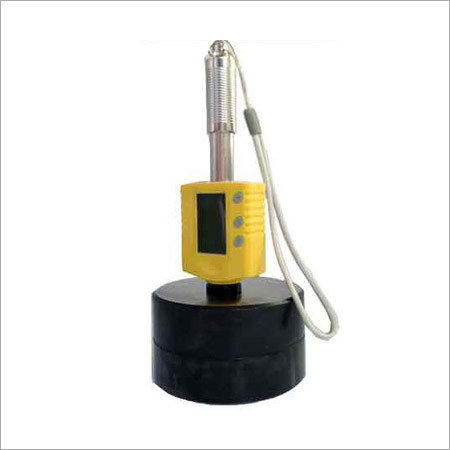
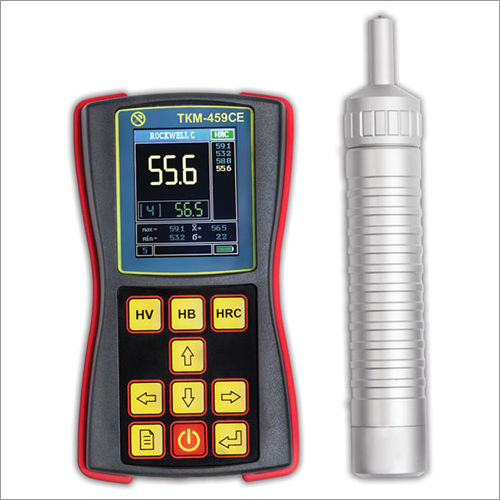
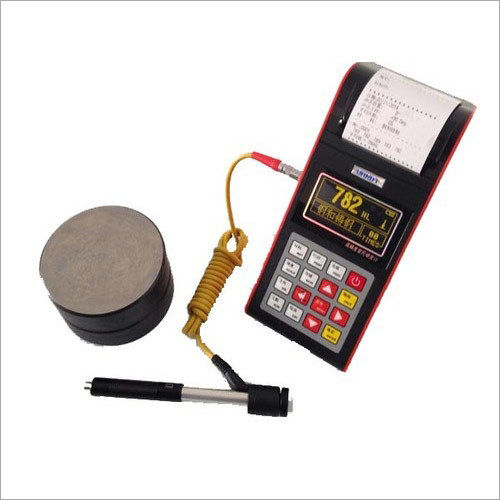
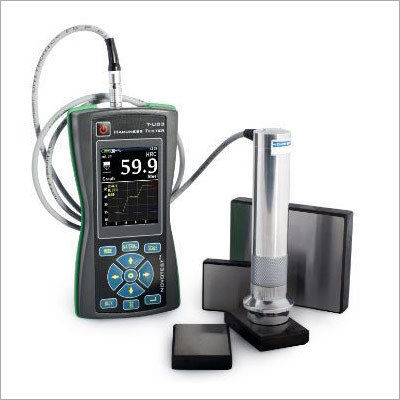
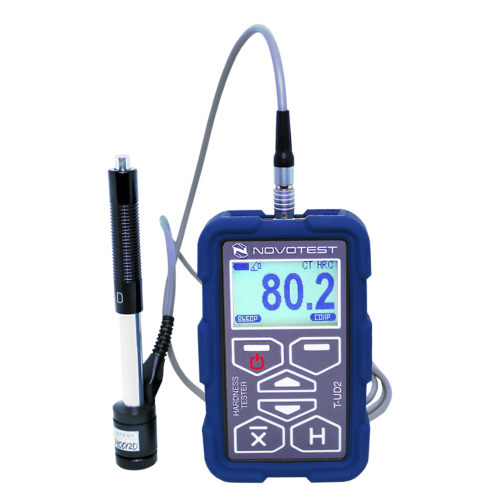
 Call Me Free
Call Me Free